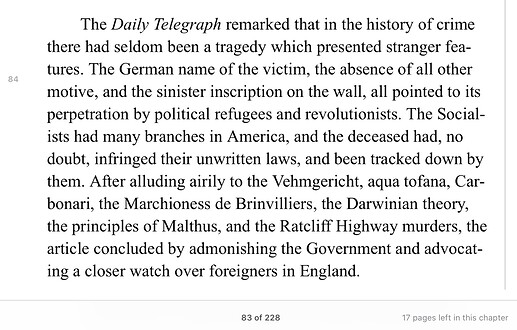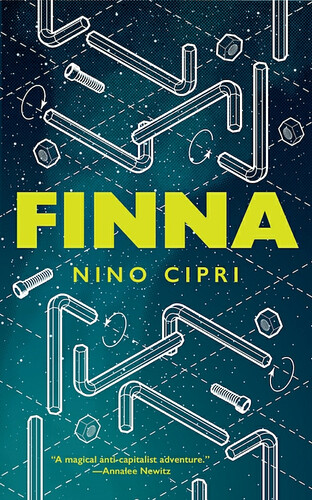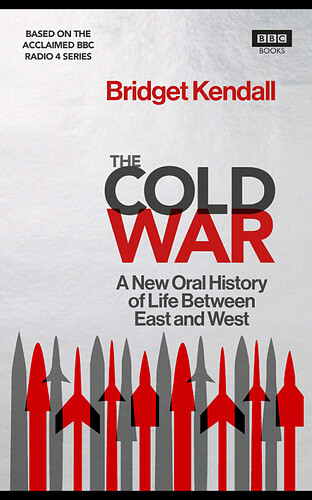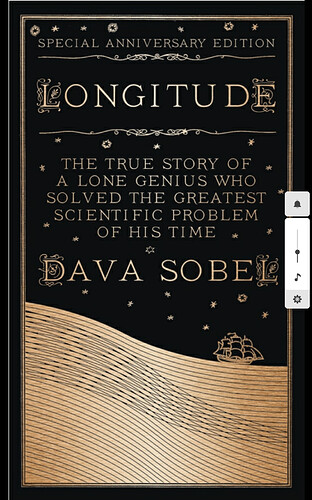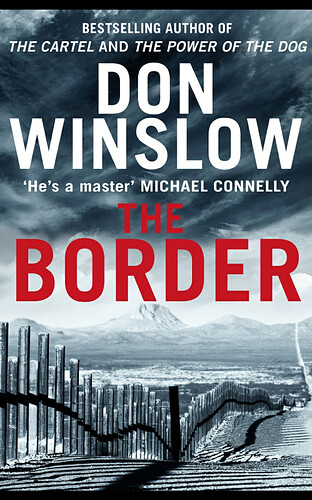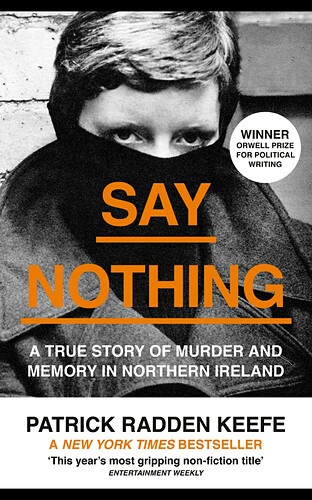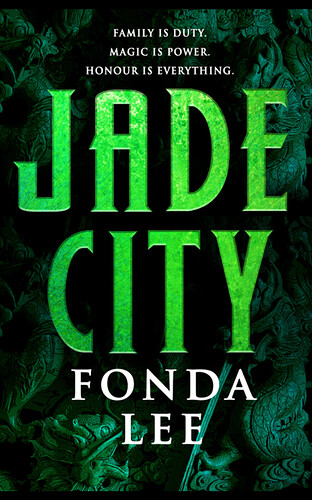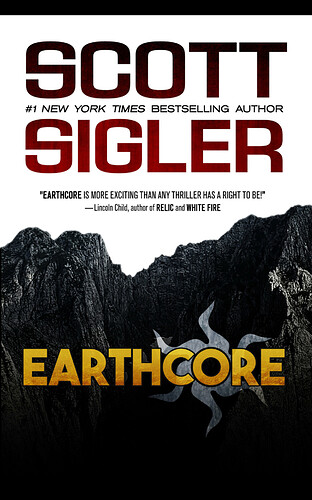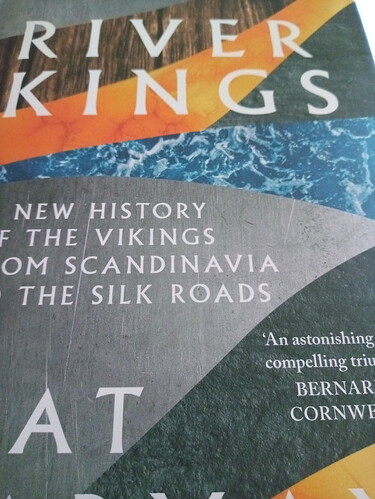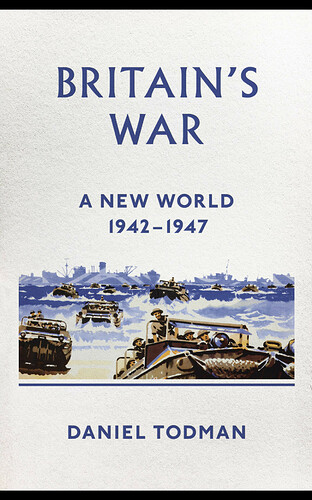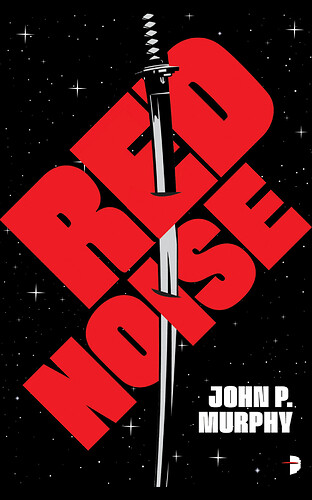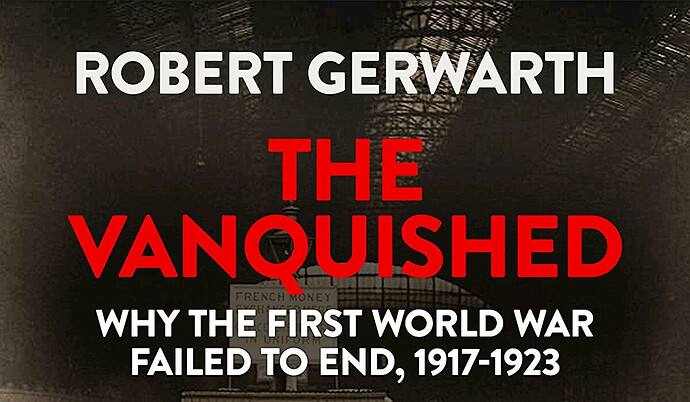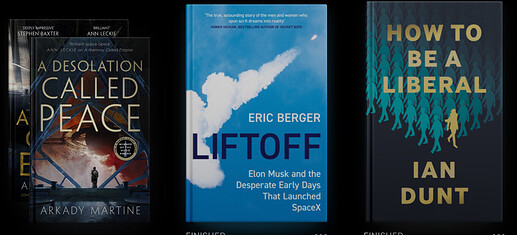The Only Good Indians, Stephen Graham Jones. The best thing I can say about Jones’ writing is: the horror is so real you don’t want to turn the page. It’s not that what happens is gory or extreme or outlandish, although it can be. Jones writes about the worst things that can happen to people, and it’s not about being torn apart by monsters, but losing what you love, undermining yourself, or destroying something you hold close to your heart. There are sometimes monsters, but the monster isn’t the loss you suffer.
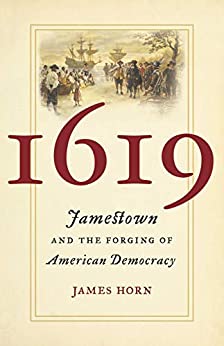
Picked this up on spec, hoping it was the book I was half-remembering was mainly about the construction of laws around slavery which went on to enable its spread, and I think I have the right one. It’s a solid book regardless and one I’m happy to have picked up.
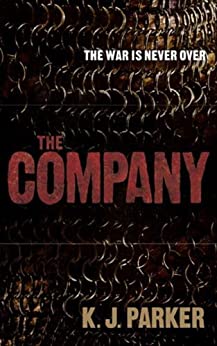
Parker writes some unusual books; knowing, cynical, and not so much as disappointed in the world as wearily amused. A group of retired soldiers club together to fund their own little colony on a remote island, and it all goes very wrong. Unique in view, and always with tricks up the sleeve.
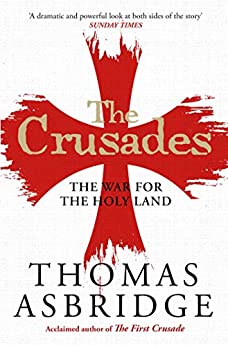
You can never have too many books on that period of history when idiots got together in their tens of thousands without even trying to prepare, and marched hundreds of miles to be slaughtered when they tried to fight professional soldiers. It’s a wonder any of the crusades were as successful as they were. If only I could stop calling the author ‘Arsebridge’.
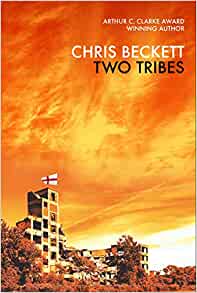
Looking back from a world devastated by climate change, a historian discovers the diaries of two people in Brexit-era Britain, and begins to write a novel about them. Not quite sure I’ve got enough distance from the goings-on myself yet to appreciate this properly.
Two Tribes looks really neat, actually. I’m very curious as to how Brexit-era Britain will turn out, and I’m equally curious to see how American Civil War 2: Electric Boogaloo is going to ramp up.
Re-read the second and third books of the Blue Ant trilogy, Spook Country and Zero History, William Gibson. The books are really a duology, only loosely coupled to Pattern Recognition. Still chilly but brilliant, although 10 years on it’s odd to read a book where AR and drones are the hot new tech. I still love the bravura ending, string-pulling antagonist leaving in his ekranoplan for Iceland which he now possibly owns half of thanks to (maybe) having caused the Icelandic banking crisis.
Inspired, I had another run at The Peripheral, only to be rewarded with a dull thud as I bounce off it again, Hey ho.
A Study in Scarlet for a bit of a Sherlock Holmes fix. I was amused by this passage
The Daily Telegraph being paranoid about refugees, foreigners and socialists eh? Plus ça change.
Would that newspaper articles would airily allude to such an assortment of things like that these days…
Ok, having gone down the Wiki rabbit hole, that passage refers to: secret German lynch courts, a kind of poison from Italy, an underground network of liberal insurgents in Italy, a notorious French poisoner, and two gruesome mass murders in London where the suspect was Irish. (Darwin and Malthus we know).
So basically it’s a list of 19th Century dogwhistles which the readers would understand as referring to covert murderous foreigners in our midst. I think Fox News or the Daily Mail have this covered.
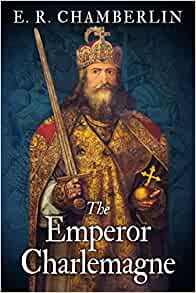
“And then I remembered my Charlemagne.” in Connery’s Scottish slur got me interested in the man when I was a literal child, and a man who quickly unified disparate kingdoms with a mix of statecraft, diplomacy, and warfare, to end up as WBO Roman Emperor (at the time, the OG Roman Empire was still going, and arguably would be for more than another 500 years) is an interesting man. On prestige alone, being the only Roman emperor in the west for hundreds of years, and technically founding an empire of his own, is pretty respectable, not only fomenting the conditions for a renaissance, but improving military logistics and technology, administration, and education. Combined with a brutal approach to warfare in line with the times, while not everything that occurred was attributable to him, he supervised the conditions which made those things possible. Overlooked next to the likes of Alexander the Great, he’s a fascinating figure.
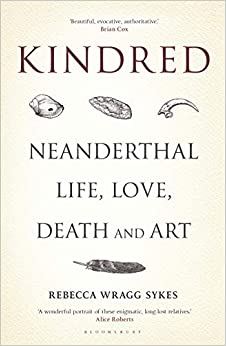
The more we find out about Neanderthals, the more similar we find we are to them. After playing Neanderthal, I’ve grown more and more interested in the subject, and seeing things about their culture reflected in ours, gives me some hope for continuity as a species.
Oh, well, that’s just sad then. I had visions of those being historical and literary allusions that readers would all be familiar with because they were so much more well-read than us heathens.
Also, your research skillz are top-notch!
Always interesting to come across two books with different takes on the same concept. An Ikea-adjacent brand retail outlet has something unusual occur, and while Horrorstor runs with a perfectly decent horror idea, Finna goes in a more scifi direction. Both touch on the terrors of retail and the particular microenvironment disorientation of working in a shop big enough to hold reenactments of Operation Barbarossa, as long as midrange furnishings feature rather more than they actually did during the original. Both use a capitalist hellscape of fake Scandinavian furniture to good effect.
Does what it says on the tin. Some oral histories are great for ‘colour’ but provide little real illumination, offering juicy stories but little understanding or information. I’m hoping this one’s better than that, early days yet.
Once upon a time the biggest problem in the world was “How big is this planet?” or possibly “Where the fuck are we?” asked by many people, simultaneously. It may be counter-intuitive, but the biggest problem in determining this was not necessarily the measurement of geography, which is of limited use at sea, unless one is ferociously good at holding one’s breath, but time. With the accurate measurement of time, one can turn that into an accurate measurement of geographical separation, and the more accurate the clock, the more accurately one’s position could be determined. At the time, the most accurate clocks were pendulum clocks. They do not do well on board a ship. Why is a mystery that will never be solved. What was needed was a clock that required no lubrication or cleaning (I said clock), impervious to rust, which remained perfectly balanced regardless of how you moved it, and which did not distort upon encountering extremes of temperature. The British Empire, unaccountably keen for accurate navigation to be invented, possibly in order to export even more flags, set an enormous prize for the man who dared to invent such a clock. John Harrison, a Yorkshire carpenter, stepped into the John Harrison-shaped breach. Promptly designing clocks from wood at the age of twenty, apparently just for the love of the game, he apprenticed to no watchmaker, and despite learning to read and write at an early age for a commoner in the 18th century, had absolutely no problem in writing his own essays on mathematics and science, with sentences topping 25 pages. Like all the best mavericks, he had to take on the establishment, and suffered for his dedication.
“I’m honestly not that bothered any more. His prose seems amateurish, and his dialogue veers into the laughable, when it’s not predictable.” Two hours of solid reading later I am forced to admit this garbage tastes nice.
This is the third long book in a trilogy of long books about Mexican cartels and the law enforcement men who go after them. If you like this sort of thing, you will like this sort of thing, but honestly, The Power of the Dog was all you needed to read.
One of the best books about Northern Ireland and the Troubles, without being about all of those things.
Everything contained in a microcosm of a single crime, taken as representative of the whole mess.
Crime and gang war in a fantasy Hong Kong. Very much up my street.
I like just about everything about it. Especially the fact it’s set in what appears to be a 20th century equivalent in terms of technology.
Beckett is like a slightly more normal Vandermeer, for this one. Usually a bit more straightforward, it’s actually a nice change that this takes a surreal turn.
Jade City sounds good… and for 2.99 on iBooks, no less? I’m in!
Now, we all know it’s impossible to keep our brows high all the time. You do need something to cleanse the palate between reading the biography of Michaelangelo’s wooden hands and the latest treatise on quantum maffs, but ladies and gentlemen, this book is not it.
From the terrible title (the equivalent title of an Aliens novel would be ‘Weyland-Yutani’), to the plot that just has shit smeared all over its face in a futile attempt at camouflage, to the walking cliches that are the characters that take too long to die, to the godawful unneeded epilogue that promises a sequel in the same way Robert Downey Jr does, winking and making finger guns at you, the viewer, at the end of every Iron Man film. A bad book, that has made me a worse person.
My friends know what I like, and what I like is cutting edge history in hardback. A study of global trade and history, aided by genetic studies, of the Vikings. Going through it like history-flavoured cocaine.
A synthesis of political/military/social/economic history of those rambunctious times, when world war was popular and empires were restless. Broad in scope, and detailed. I devoured the first volume, and I’m chewing on the second, and I’m glad I got it in ebook form because I keep making notes every other page or so. One aspect where ebooks are better.
I want to read everything Murphy has wrote after this, which isn’t difficult, since he’s only written one other work. Kurosawa with added sarcasm, as a loner turns up at a run-down space station, looking to refuel, do a little business, and leave. Two warring gangs have other ideas. Absolutely wonderful book, the one-liners are as cutting as the blades.
Judgement reserved until I’ve finished it, as too many WWI books shit the bed (“But what if it wasn’t the fault of the Germans?”) before the end, but very promising so far.
A Desolation Called Peace, Arkady Martine. Second volume following A Memory Called Empire. Interesting book, more claustrophobic than the first book. Readers familiar with the genre will twig pretty early what is going on with the skiffy first-contact bit, but that’s mostly a dramatic background to the politics, the contemplation of language, and whether you can really ever go home.
Liftoff, Eric Berger. Engaging history of the earliest days of SpaceX. The style verges on the annoyingly chatty at times, but Berger has clearly had access to everyone who was there and it shows. I think it’s quite balanced in how it treats Musk, showing where his obsession, drive and decisiveness worked, where he was generous, and where he was a complete arse. The idea of Elon Musk running out of money seems quite quaint now.
How To Be A Liberal, Ian Dunt. Frankly depressing. Not for the scholarship and content, which is excellent and stylish, and the tour through the history of liberalism as a school of thought fascinating. Depressing because the last chapters are the tale of infighting and the long defeat in the era of Brexit and Trump. The book ends on a rallying cry for liberal democracy. Eh, he’s more optimistic than me.
Also, reread Mr Penumbra’s 24-Hour Bookstore, Robin Sloan. Comfort reading, warmly humane in a way that reminds me of Microserfs. Also What Abigail Did That Summer, Ben Aaronovitch, a Rivers of London novella, which sadly fell a bit flat for me. I think the last two RoL outings have been a bit lacklustre unfortunately.
I don’t put any stock in Dunt’s book. The tour is nice, but the idea itself now seems painfully dated, and simply asking for more beatings in order to improve morale. That sort of enlightened centrism is dead. Liberalism simply did not reach enough people, or it was not powerful enough to motivate those it did reach. Pointless to issue a rallying cry now.
I fancied a light-hearted read, so I resorted to
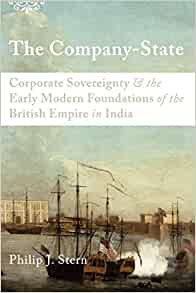
When talking about warnings from history, people often bring up the Nazis, but while fascism is pernicious, it’s also obvious. One of the more insidious things is the rise of the corporation, in this case dating from its inception in the 16th century, and the way in which governments off-load duties onto corporations, sometimes merely to save bandwidth, and retain only basic oversight capabilities which are sparingly used at best. This corporation can then be openly incorporated into empire, as the British Empire did with John Company, or not, but it’s still doing imperial shit.
This leads directly to
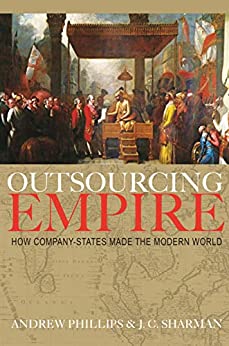
Which is basically what I said above. They flourish where there’s a profit to be made, which makes them a handy thin end of the wedge for empires, and the way in which they raise capital via stocks can make them incredibly powerful. They’re not traditionally accountable, either by law or democracy, so it makes them a handy proxy for the unacceptable. While overt company-states fell by the wayside, all the bad shit we rightfully blame corporations for today, they did back then.
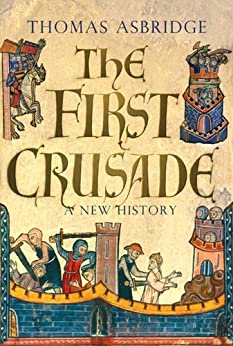
For all I know, Asbridge has a separate book on each crusade, so my purchase of his book covering them all was either genius or stupidity. I bought this one as well, because it’s very much a start-as-you-mean-to-go-on sort of situation, complete with absolute ineptitude. Check out the Peasant’s Crusade if you ever want some bleak laughs, proper lads-on-tour stuff except with more massacres of Jews.
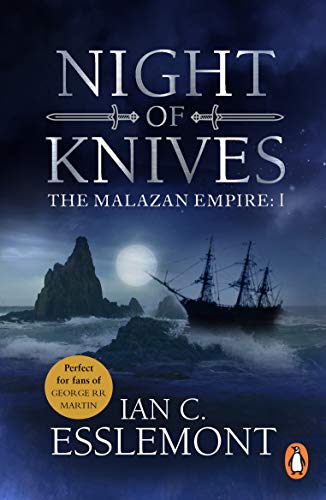
My RDA of fiction.
That’s some impressive reading. Have you got the new edition of John Company ordered yet?
I’m in on the kickstarter, absolutely.
A passing note of two disappointments.
This Little Art, Kate Briggs, an extended contemplation on translation and meaning. I am a sucker for this kind of thing, as I’m learning in my untalented way just how hard it is to convert meaning between two languages. However, whimsical meandering is fine up to a point, that point being around page 206 where there are another 400 to go and at this point you’re pretty sure the author is just following her own footsteps.
A Game of Birds & Wolves, Simon Parkin. To be clear, I’ve read the first 58 pages as a sample on iBooks and I’m not spending £7 on the rest of the drivel. It’s a history of the Western Approaches Tactical Unit, which I was excited to find. However, it turns out to be history of the “Julius Caesar paused in the dawn light on the banks of the Rubicon, pondering on the fateful step he was about to take” sort. The first two paragraphs are exactly this kind of imaginative reconstruction drivel. If Roberts and Doenitz really did meet for the first time in the mid afternoon sunlight where the only sound was the creak of the gangplank and the slap of the sea, I want a fucking footnote to a diary or eyewitness account, otherwise take your story and piss off to the fiction section.
The Kingdom of Liars, Martell. Fucking garbage. What if someone wrote a fantasy novel but without a single atom of inspiration.
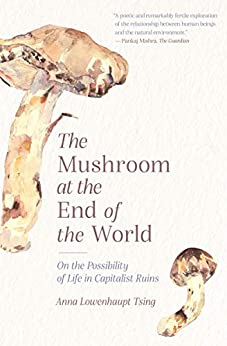
Exploring the terrible relationship between deforestation driven by capitalism, and the value of a rare mushroom that grows in forests. Ecology is at the heart of it, but also economies. Exploiting the gaps left by capitalism (‘gaps’ is perhaps too polite, ‘wastes’ might be more fitting) by way of fungi and people.
